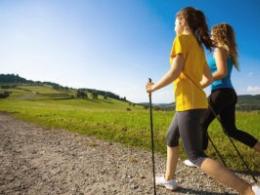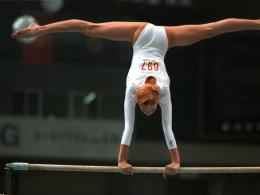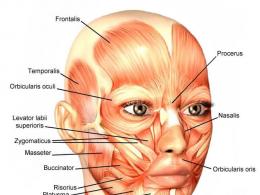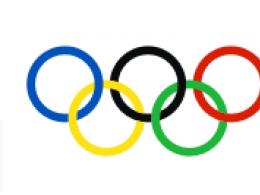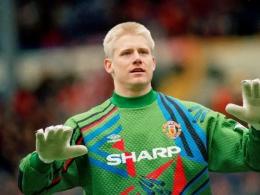Services for organizing away sports camps. Sports camps Why are sports camps needed?
Sports camps produce champions.
Should a child participate in training camps? How to spend time effectively and is it possible to get quick results with training?
Types of sports training
In general terms, fees are divided into:
- professional. They are held for both beginners and seasoned professionals from national teams.
- preparatory before an important event. And depending on the type, events are divided into several types: competitions abroad, championships, championships, national cups, all-Russian competitions.
- special sports camps. They are: general or special, restorative, during the holiday period, for recruiting national teams.
According to the time of year, collections are divided into: summer, autumn, spring, winter or by location: in the mountains, at sea, in a pine forest.
You can divide the camps based on the type of sport, for example, football, hockey, camps for runners, swimmers, and athletes. They all have their own individual characteristics, such as load, exercises, technique or analysis.
That is why sports camps are so numerous and popular. There are good choices for training your young athlete.
Why are sports camps needed?
What does the sports fee provide? Perhaps it is not needed at all, and the athlete should rest in the summer, or continue his usual pace of training.
- Immersion in the atmosphere. Communication with like-minded people from different sports schools, and just peers has a positive effect on the child’s psyche. This will bring the child into himself and into what he does.
- Intensity of classes. Consider sports camps as an opportunity to improve your performance and gain new experience. 50% of sports training is sports and 50% recreation.
- Daily routine, nutrition, fresh air. Restoring the body in a year is more than what your child needs.
- They develop creatively. After all, collecting involves not only workload, but also educational leisure. And these include artistic productions, cultural events, and educational games. The teacher is a full-fledged leader of the training camp, as is the coach.
- No external factors. School and television often prevent a young athlete from concentrating on his training. Or he begins to treat them as a routine. The gathering is a place where there is only what you love and relaxation.
- It is very important not to lose the sports form you have developed over the year in the summer. And in the fall, don’t waste time repeating material that has already been worked out, but has been forgotten.
What to pay attention to
Selecting a sports camp
What should you pay attention to? After making the decision to send your child to training camp, thousands of questions immediately arise in your head: where, when, where, what. You need to approach the choice of training responsibly in order not to feel every minute anxiety for your child and to be confident in him and the professionalism of the coaches.
If your sports school does not hold training camps, you should pay attention to the experience in organizing such events, the infrastructure, and the reputation of the institution. Simple requirements that parents must have: accommodation according to age, daily cleaning, food selected for the sports regime, taking into account sports loads. The main diet is porridge, vegetables, meat.
Collect feedback, don't be shy to ask questions. Constant friendly communication between you and the organizers is a good sign of a quality gathering.
When is it time to go to sports training camps?
Both beginners with zero level of training and members of the national team come to the training camp. The camp provides an opportunity for novice athletes to reach a higher level, and they have role models. Professional athletes come for new experiences and to perfect one or two skills.
Where to go for sports training

Main criteria: good location, medical care, food, safety, leisure, living conditions - all this is an integral factor in successful and useful training camps.
Depending on the location, they are divided into boarding houses, educational and training facilities, and sports complexes. The most popular destination for sports training: the south of Russia or simply environmentally friendly places.
Duration of sports training
The average duration of collection is from a week to two months. The more professional and mature the athlete, the longer the training camp lasts and the more firmly they are tied to the season or high-level competition. Very often, young athletes enjoy the training camp so much that they ask their parents to leave them for another week.
The effect of sports fees
There is a basic unshakable rule: if the training camp lasts a week, you will recover for a week. And the training effect will also last a week.
The main effect of the fees is . Understanding what is necessary and possible to overcome fatigue. As well as the support received from other athletes, the atmosphere of universal love for sports.
Training at sports camps
Since almost every sport has training camps, the coaching staff and organizers decide which set of exercises will be appropriate now in accordance with the goals of a particular sport.
Sports training for swimmers includes speed and speed-strength loads. They train not only in water, but also on land.
The training process itself is a whole system. The system where you need to work: a lot of swimming, a lot of stretching, a lot of running, gymnastics for the legs. All this requires strength, patience and endurance. At first it’s hard for everyone, but then the children adapt and eventually improve their swimming results. The mother of a young swimmer tells.
Hockey players practice proper skating, develop dribbling and hockey skills.
It was our first time at the training camp. I was amazed by the work of the coaches with the children! Each trainer showed the exercises to the children with explanations and demonstrations. Each subsequent workout was different from the previous one - such a variety of exercises! My son is delighted!!! The mother of a young hockey player shared her impressions.
Martial arts training camps develop concentration, automaticity of movements, power, composure, and rhythm.
World champion in athletics Sergei Shubenkov recalls how at a training camp over two summer months and two winter months, in good infrastructure conditions, he was able to show high results. While the sports school was poorly equipped with sports equipment.
How are sports camps held?
The standard daily routine for any gathering: getting up, putting things in order, breakfast, warm-up, training, lunch, leisure, training, dinner, getting ready for bed. The schedule is structured in such a way that there is time for theory, rest, and communication.
Microcycles are the harmonization of the influence of exercises on all types of muscles, and not just those that are developed in your sport.
The working sports schedule is divided into microcycles. That is, this is a good base and fasting time at the same time. Load blocks and recovery between them have a positive effect on skill development.
An individual approach is selected for each young athlete. makes a decision on the duration of training based on the condition, health, and technical training of each athlete.
Why do our children need sports?
Sports training, why is it necessary?
General issues of the training process.
1. Why does a child need to go to a sports training camp (sports camp)?
We will omit the answer to the first question, because... If your child already attends our sports school or you are going to bring him to us, you don’t need to explain all the advantages of playing sports, especially outdoors, especially skiing.
On the eve of summer, we consider it necessary to discuss, first of all, the issue of summer training camps, as well as other issues.
Some parents believe that their child should stay exclusively at the dacha all summer, or they think that sports camps and camps are only for the most experienced athletes, members of the national team, and it’s too early for their children... We’ll try to explain why they still need to go. First of all, this is an excellent opportunity to get a good and intensive workout, without wasting energy in city traffic jams and without being distracted by other activities (school, kindergarten, clubs), but also to relax at sea with friends and/or parents, spending time with maximum benefit.
1. Summer is a time to maintain, improve and restore sports shape.
Every year, the majority of our students achieve their best results in March-April: the best indicators of the development of physical qualities for the year, the best sports results (prizes in competitions, assigned sports categories). For objective reasons, most sports schools do not conduct regular training sessions in the summer. Because of this, almost all athletes’ fitness levels decrease significantly over the summer. At the same time, in September, regional and city championships are held among athletes 7-15 years old, and alpine skiing competitions are just around the corner. Summer training and sports camps at our school are built on the basis of several training microcycles, the task of the first of which is precisely to restore the physical shape of athletes (alpine skiing, like any other sport, has its own specific influence on the body and muscle groups, in the summer period we are trying to harmonize the sports uniform). Absence from summer training and non-participation of athletes in sports camps significantly reduces the success of their performance in important autumn competitions, and also significantly reduces the effectiveness of training sessions in September-October, since instead of studying new material, they have to repeat what they have learned and restore physical and sports skills forgotten during summer.
2. Significant improvement in athletic fitness.
The second and third training microcycles are aimed at further improving athletic fitness and can significantly improve the level of development of physical qualities in athletes. The quality of technical elements of Special Alpine Ski Training in the summer and General Physical Training is improving. This can be achieved by conducting a large number of training sessions at training camps (both in winter and summer), for example, 35 training hours at a training camp (7-9 training days) correspond to 2-3 months of training with average attendance, as well as the effectiveness of these classes (athletes are not busy with anything else, not counting rest).
3. Development of physical qualities in athletes.
At the Luch Ski School we pay great attention to the simultaneous development of the physical qualities of athletes at all stages of long-term year-round training (endurance, strength, agility, coordination, balance, etc.) and the primary development of individual qualities during the age periods most favorable for this (see Program of the General Staff "Luch"). Regardless of the level of sports achievements in the season, as a result of attending training sessions in the summer, we guarantee a noticeable improvement in physical fitness. The physical development of those involved is one of our main goals (and, as it seems to us, the goal of most parents who enroll their children in a ski school for year-round training). But some physical qualities (for example, coordination or flexibility) can be significantly improved only through regular (continuous) training sessions. Training at a sports camp contributes most effectively to a significant improvement in the development of physical qualities in athletes, and also lays the foundation for further training.
4. Strengthening the athletes’ character, fortitude and willpower.
All positive effects from activities in a sports training camp are manifested to a greater extent due to their intensity. At the same time, when conducting training sessions at the training camp, just like in regular classes, we are guided by the principle “From simple to complex.”
- Sport helps you study better.A healthy child is one that develops harmoniously. Practice shows that children whose schedule includes physical activity on a par with mental activity have better academic performance than their peers who do not play sports. And this is logical - during sports, the brain is saturated with oxygen, which helps the baby to be more focused and diligent, improves the quality of sleep and the ability to remember.
- Sport builds character.Children involved in sports clubs learn not to leave things halfway, but to complete them; not to give up, but to overcome difficulties. All sports activities develop qualities such as patience, discipline, and the ability to concentrate. Through playing sports, children develop a desire to be better and better.
- Sport is good for health.This point does not need explanation, but we will repeat: sport strengthens your child’s health. Sports activities form a muscular corset, strengthen the respiratory system and immunity.
It is important that your child enjoys playing sports, because the most important thing is a happy childhood for your child. Therefore, we try to make the training process interesting, varied and exciting. Don't forget about rest after classes as well. After each workout, full recovery is necessary.
5. Possibility of moving to a stronger group.
Starting this year, we are trying to more clearly differentiate children by skills and abilities. In our understanding, children of the 1st year of education should train separately from others (to minimize stress and improve the quality of perception of new information).
We consider the transfer of athletes from one group to another (stronger) to be correct and possible from the 2nd year of study (but there are also exceptional cases, we only welcome them). Such translations help increase the effectiveness of training sessions in groups, because the more equal the group is in terms of level and age, the better. However, we would like to draw your attention to the fact that the decision to transfer an athlete is made by the coaching staff, based on the principle of objectivity (the capabilities and successes of your children, as well as the attitude towards classes and the desire, first of all, of the child and parent, the coaches know better).
Every year, at the end of October, we plan to update the group compositions, transferring some athletes to stronger groups. The greatest chances to move into a stronger group are those athletes who have proven themselves well in summer training sessions according to the main schedule and who have gone to sports camps (namely those who have proven themselves, and not just everyone who went to them). In our opinion, this is logical, given that it is not possible to judge the fitness of those who have not trained since May.
6. Seaside holidays for athletes and their relatives.
In addition to the ideal conditions for sports training, which we try to offer for all our athletes, their relatives also have the opportunity to have a good rest at sea in comfortable conditions. Mainly for summer holidays we offer comfortable family accommodation - proven hotels, perhaps of a higher category than necessary for our sports tasks (and therefore more expensive), good food, sports infrastructure, a safe area for children, clean sea and beach. However, we would like to draw your attention to the fact that we are not a travel company; our primary tasks are to choose an object for a gathering, and not for a family vacation.
7. Fostering independence and the ability to coexist in society.
Most children are now “attached” to their parents and grandparents. They don’t go on vacation anywhere without relatives. Sports camps are a unique opportunity to foster independence in a child. Sending your children alone to holiday camps using vouchers is a certain risk, since you do not know who your child is going with (which guys will surround him), and what the group leader is like. The only way these days to send a child alone on vacation, which reduces these risks, is to send him accompanied by his coach. In this case, you know both the coach and other children with whom your child will be around for 14-21 days. Of course, with all our “independence”, we try to help children as much as possible in all everyday matters.
2. Why this place (hotel) and not another?
1. The choice of location for the collection is made up of several factors:
- Price (we take into account the financial capabilities of all school parents).
- The necessary base for training, taking into account the tasks of collection.
- Safety, both physically and in terms of health (we simply do not consider some venues for sports training camps, despite the generally acceptable conditions for conducting training sessions, we rely on our experience or feedback from our colleagues and specialists in the field of tourism)
- Possibility of delivery or rental of sports equipment.
3. The main misconceptions of some parents
1. Why do skiers need training camps in the summer? Why are there so many fees in summer?
In June-July, the training process is aimed at restoring the body's resources after the winter season and beginning preparation for the active training period (therefore, as a rule, it is the sea), holding sports camps at the end of July or in August is necessary to acquire optimal sports form for the start of the competition season. By skipping especially the August training period, we will not see the level of preparation we expected.
2. I am afraid to let my child go to a sports training camp (he will get sunburned, or hurt himself, or drown in the sea, etc.)
During a sports camp, we do not limit ourselves solely to conducting training sessions. Children enter and exit the sea (or pool) at the command of their trainers; while swimming, children are always under the supervision of a trainer. Also, our coaches and parents of other children provide maximum assistance to children who are not very independent: they wake them up in the morning for training sessions, help fold/wash clothes, make sure that children eat well and correctly, help with personal hygiene issues, etc.
Director of the General Staff "Luch" Eliseeva N.M.
and the school's coaching staff.
Evgeny Gavrilov, co-founder of the Running Laboratory, explains why sports camps are needed, how and where to conduct them.
Why are sports camps needed and what are they?
To achieve results in running, you need to train a lot correctly, improve technique, endurance and not get injured. It is almost impossible for an ordinary working person to work, do two workouts a day, and still have time to recover.
Sports training is from several days to several weeks of training, when nothing distracts you from sports and rest between training sessions.
When is it time to go to sports training?
It doesn't matter if you are a beginner or an advanced athlete, the training camp will help you in any case.
For a beginner, you can focus on technique or endurance. One or two weeks of training under the close supervision of a trainer will help you achieve what would normally take one or two months.
More experienced athletes go to training camps to lay a foundation (do a lot of long training at a slow pace), develop some physiological parameter, prepare for specific competitions or get a set of training, for example, mountain training, which is impossible to do in urban conditions, and even just - relax.
The time for collection is selected depending on the purpose. Marathon runners lay their foundation in the winter - this is the basis for subsequent speed and technical training. Therefore, such camps are held from December to February. Technique training requires low loads, so it is very good to work on it during the recovery period after the summer season - in October, November. In March - April, training camps are held to prepare for the competitive season.
And if you have a start at which you plan to show an excellent result, then the start itself should follow a series of training camps. First, preparatory training, which helps to get you in good shape for the start date. Next come those that help to optimally recover and acclimatize to the very start. This is a complex process that is very individual and depends on a lot of information. Even Olympic teams do not always reach their peak form at the Olympics.
Where to go for sports training?
First of all, training camps are held where nothing - neither cooking, nor work, nor friends and family (this is more difficult) - interferes with training and sleep. If training takes place indoors, and you can “hide” from unnecessary communication, you can stay at home. However, it is psychologically easier to tune in to training by changing the environment. And the team with which you go to the training camp can teach you something new.
Runners are heading into summer. For Russian national teams there are two main favorite places: Kislovodsk and Issyk-Kul. The reason is simple: climate and mountains.
People go to Kislovodsk more for the climate, because an altitude of 700 meters above sea level is not considered a mountain in sports training methods. And from the point of view of developing results, it is better to live at 1200 m and train at 700 m than vice versa, because you stay at altitude longer. And the dry climate of Kislovodsk makes even a temperature of −7 quite comfortable for running.
Issyk-Kul is located much higher, but this means not only an increase in hemoglobin in the blood (transfers oxygen into cells and removes carbon dioxide from them), but also carries a much greater likelihood of overtraining and loss of the competitive season.
Experienced athletes and their coaches know what they are doing, so training at altitude greatly adds to their endurance. For example, if it is hot at a responsible start, training camps are held not in the mountains, but in a hot climate. If it is humid, the mountains should also be humid. If the climate and weather during the start are normal, you still need to estimate the water consumption at the competition and maybe reduce training so that the hemoglobin level does not rise too much. After the training camp, you can do a number of training activities to delay the effect of the training camp.
How long should sports training be?
In Europe, short fees are accepted. Most amateurs are working people, they cannot leave for a long time and cannot do complex double or stacked workouts within the working week (this is when two or three hard workouts go in a row and each subsequent one is performed at a level of under-recovery from the previous one). Then they add two extra days to the usual weekend and do a series of workouts, and recovery occurs during the work week.
In Russia, longer fees are accepted. They consist of several load blocks with recovery between them.
But the length of the training camp is determined not only by your free time. It is determined by the capabilities of your body: how much training the body is able to accumulate fatigue without breakdowns in illness, overtraining or injury. This is why even elite athletes try not to do training camps longer than 3 weeks. If longer training sessions are needed, they are done in double sessions with a week or two of rest between them.
If you haven’t attended a training camp before, it’s better to do it for one week at first, so as not to overtrain.
Also, the length of the fees depends on how long the effect of the fees should last.

How long does the effect of sports training last?
There is a simple formula that will suit any amateur: if you do the training for one week, then you will recover for a week, and for another week you will run on the effect of the training. Of course, this formula is influenced by individual characteristics, intensity of training, the need for acclimatization, recovery after training, but in general it works.
What kind of training should you do at sports training camps?
The easiest way is to tie training at the training camp to a standard work week, dividing it into two parts. Then you can create training camps of any duration from standard cycles of three or four days.
Standard four day cycle:
Day 1 – interval training
Day 2 – tempo training
Day 3 – long training
Day 4 - rest day
Standard three day cycle:
Day 1 – interval training or tempo training
Day 2 – long training
Day 3 - rest day
The content and duration of training on each day not only can, but should vary. You can run intervals of 200 meters, or you can run intervals of 5000 meters. Tempo training can be either at a steady pace or at a jagged pace, with or without a climb. A long training session can be a two-hour cross-country race or a six-hour cross-hike. The optimal load is determined by the coach depending on the condition and preparation of the athlete.

What effect can you expect from the fees?
Training camps mean training, proper recovery between them and good sleep - something that an athlete so often lacks in order to show good results in competitions. If you have a good trainer or you can create and adjust the training plan yourself, expect the same effect from the training camp as from a month or two of training as usual.
Announcement of training camps with the Running Laboratory
We offer:
Training 1-2 times a day, with a professional trainer.
Approximate plan for the day:
10:00 — First workout
12:00−17:00 — Lunch, rest
17:00 — Second training session
Individual plan depending on weather conditions, level of training, goals and objectives of each
Cross-hiking through picturesque places of Kislovodsk (Beshtau, Honey Falls, Small and Big Sedlo, etc.)
Cost of the training process:
1 week - 10,000 rub.
2 weeks - 15,000 rubles.
There are special conditions for members of the Runlab running club.
Meals, accommodation and tickets are not included in the price.
Meeting with the Running Laboratory is an excellent opportunity to prepare for the Moscow, Berlin, Chicago, New York marathons, Autumn Thunder, Crimea X-run tails, Grom Trail run and other autumn competitions.
7 495 419 28 87
+7 921 655 13 51 St. Petersburg
Find base:
Organizing sports camps is what your team needs
To achieve high athletic results, proper training is very important. And this applies not only to professional, but also to amateur teams. After all, both want to win, even if it’s just a competition between office divisions, and what can we say when it comes to international tournaments and championships.
However, in our everyday life there are so many factors that interfere with training - from home life to problems with renting the necessary equipment and sports facilities. Therefore, so that athletes can fully devote themselves to training, rest and recover, sports training camps are held.
Organization of sports camps – when your team needs it
There are quite a few situations when it becomes necessary to organize sports camps. Let's name the main ones:
- Training course and preparation for the season
Before the start of the season, many coaches prefer to carefully check the current level of their players and “drive” the team through an intensive course of training - many hours a day. Beginner athletes go through the same thing, in whom they see potential and want to find out if they are ready for the load. However, doing this at home is almost impossible. Almost the only way out in this case is to organize training camps, since at the sports base nothing will distract the athletes from the sport.
- Recovery after the season
The opposite situation also happens - the season has already been played and, of course, it is almost impossible for it not to leave any mark on the moral and physical condition of the athletes. They need to recover, treat injuries, replenish their strength, but at the same time they cannot interrupt training, especially for representatives of sports such as gymnastics or figure skating, where every downtime can become critical. In this case, the optimal ones are training camps at sports and recreation centers, where players will be offered both full training opportunities and medical treatments.
- Rest
The same thing that applies to recovery also applies to the rest of athletes - it must combine training and an entertainment and relaxation program. And the easiest way to achieve this is at a sports base.
- Strengthening team spirit, resolving conflicts in the team
At the sports complex, athletes are almost constantly together - training, eating, walking, having fun, and so on. This certainly unites us, forces us to find common ground not only on the field, but also off it, and helps resolve conflicts in a calm atmosphere. It is noteworthy that teams of employees of commercial companies also go to sports camps for the same reason. After all, this allows managers to learn to work more closely together, rely on each other, and therefore be more successful in their work.
- Introducing real athletes to life
This applies primarily to children's teams. It is at sports training camps that they can fully experience what professional training is, what champions have to do, what kind of discipline and regime they have.
Organizing sports camps in good hands
You have decided that your team needs sports training - contact us.
We organize and conduct educational, sports and recreational, rehabilitation, control and other training camps and can offer you a wide selection of sports facilities for many sports. With us you will get exactly what you need so that your team can train and relax in the best conditions.
Many people have heard what sports training is, but not everyone knows what it is. However, for those who strive to improve their child's health, it is important to really know what it is. In professional sports, training camps are a preparatory period for athletes before the start of a new season. They are needed to explain to the athletes the goals for the upcoming season, tasks and ways to achieve them, and also to see what the team is capable of after the off-season. Sports camps in children's schools, including ours, are multi-day health-improving and training events that combine sports and active recreation. Traditionally, they are held outside the city, in an ecologically clean area: in the forest, in the mountains or by the sea. Today, sports camps for children are an analogue of a summer camp in the West or an analogue of a Soviet-era pioneer camp, but only with a sports program. Remember how it was? In modern times, it is very important (we insist on the word “very”) for children to learn to communicate with each other and enjoy this communication as part of an impromptu children’s “commune,” which is what any children’s camp represents.
 The main goal of our sports camps is to improve the health of everyone who takes part in them. Exercising in the fresh air is extremely beneficial for the body, as the blood is more quickly saturated with oxygen, the child gets tired less and exercises with greater pleasure. Being close to nature also helps you tune in to the right wavelength, relax and give it your all. In general, speaking in general, sports camps are very interesting and exciting! The guys live as one team, united by common goals and interests. It is during training camps that children really get to know each other and the club becomes a club. Intense and varied training allows you to quickly improve sportsmanship, and it is after the training camp that many young athletes begin to take prizes in competitions and move on to leadership positions in their subgroup.
The main goal of our sports camps is to improve the health of everyone who takes part in them. Exercising in the fresh air is extremely beneficial for the body, as the blood is more quickly saturated with oxygen, the child gets tired less and exercises with greater pleasure. Being close to nature also helps you tune in to the right wavelength, relax and give it your all. In general, speaking in general, sports camps are very interesting and exciting! The guys live as one team, united by common goals and interests. It is during training camps that children really get to know each other and the club becomes a club. Intense and varied training allows you to quickly improve sportsmanship, and it is after the training camp that many young athletes begin to take prizes in competitions and move on to leadership positions in their subgroup.
Typically, training camps are held at a summer camp, at a tourist center or at a boarding house. Trips last from a few days to several weeks, and the routine includes both standard training and exercise, as well as relaxation, sightseeing and simply having a good time. An evening program is required - films, games, animation!
The Natator Club has extensive experience in organizing sports camps for children, so we understand not only the importance of the psychological background of the event and the thoughtfulness of the sports program, but also the importance of the everyday component. Therefore, every year we provide all the necessary “suitcase” recommendations before children leave for training camps (see “News”).


